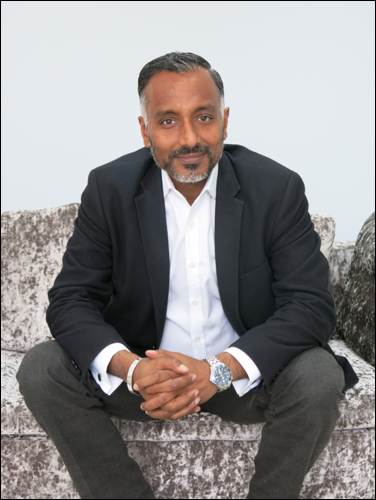Influential People 2018 | Medicine| Dr Anshumen Bhagat GPDQ
Advertisement – Advertise here from OMR 100 / $275 USD
Al-Sahawat Times | Ethical Global News from Oman and UAE | Donate HERE
Advertisement – Advertise here from OMR 100 / $275 USD
We are all familiar with lists of “Most Influential” people.
Time magazine, Pulse, IPMG and Forbes all publish annual lists. The lists are often too heavily focused on politics and capital gains rather than actual societal contributions.
When Pulse published a list of the top 50 most influential people in medicine, it made the team here at Al-Sahawat Times start to think..
Who are the most influential people in terms of societal contributions?

Dr Anshumen Bhagat was listed at number 20 in Pulse’s list of 50 most influential people in medicine. But here at Al-Sahawat Times we think Dr Bhagat deserves a more in depth look.
Dr. Anshumen Bhagat’s GP home-visiting service, GP Delivered Quick (GPDQ), allows patients to book on demand face-to-face appointments by going online or using an app.
Yet it is when you take a closer look that the magic of this idea comes to life. The biggest problems for societal health are stress related mental health and time lost to the excruciatingly slow process of NHS routine treatments for anything from cyst removals to digestive issues.
From on site instant medical care and treatments in offices to home visits for individuals this is truly tailored medical care, at your convenience that works. GPDQ doesn’t rely on call centres or relays of appointments or video call only treatments. They send specialist medical professionals from a large geographical network direct to your door, at speed, and at a reasonable cost.
The private service, first launched in England: London in 2015 and then extended to Birmingham in 2016, now also operates from Manchester and Oxford with Scotland: Glasgow and Edinburgh and Wales: Cardiff. With a view to grow globally.
In its first CQC inspection report, published in the spring, GPDQ was described as being ‘innovative’ in its use of IT ‘to improve how patients could access primary care without the need to visit a GP surgery’. It also highlighted how the service’s app helped to ensure patient requests were ‘matched with the clinician best suited to meet the patient’s needs’ based on geographical location and individual preferences.
This means if you are in need of treatment for a throat condition you are not going to be sitting in a GP waiting room for hours after taking a day off work, before a consultation with a rectal specialist.
Some in the NHS have raised concerns as to whether this practise may divert funds and staff away from the national health service.
However, GPDQ only uses clinicians whom are primarily NHS medics. This means that GPDQ complements the NHS and shortens waiting times and demands on a strained and failing system. GPDQ is the only private system that works to complement and dovetail with the NHS.
The company pointed out in their interview with Pulse that it only hires GPs who also work in the NHS and Dr Bhagat – who is a GP principal at a north London NHS medical centre stated that around 25% of them were considering leaving their NHS jobs until they became involved with his private service.
He says is now on a ‘personal drive to stop GPs leaving the country – or worse, leaving the profession’.
WHY INFLUENTIAL
This is why Dr Bhagat is to be considered one of the most influential medical professionals in the world. Because he is actively reversing the horrific damage and awful reputation that the British NHS has. When GPDQ goes global this could set a model for a great way that governments and private companies can work together to make a reliable and efficient healthcare for all individuals and workplaces.
Since you’re here …
… we have a small favour to ask. More people are reading Al-Sahawat Times than ever but advertising revenues across the global media industry are falling fast. And unlike many news organisations, we haven’t put up a total paywall. We want to keep our journalism as open as we can. So you can see why we need to ask for your help. Al-Sahawat Times’ independent, investigative journalism takes a lot of time, money and hard work to produce. But we do it because we believe truly ethical media and an unbias perspective really matters.
“I appreciate there not being a paywall: it is more democratic for the media to be available for all and not a commodity to be purchased by a few. I’m happy to make a contribution so others with less means still have access to information.”
If everyone who reads our reporting, who likes it, helps fund it, the future of ethical media and the futures of our staff and their families would be much more secure. For as little as £1, you can support Al-Sahawat Times and it only takes a minute. Thank you.
This story is available on:
APPLE NEWS | GOOGLE NEWS | AL-SAHAWAT TIMES
Talk to a journalist
Email: NewsDesk@alsahawat.com
Web: alsahawat.com
Follow Al-Sahawat Times
A.Abdulaziz@alsahawat.com | Editor
Views: 0







